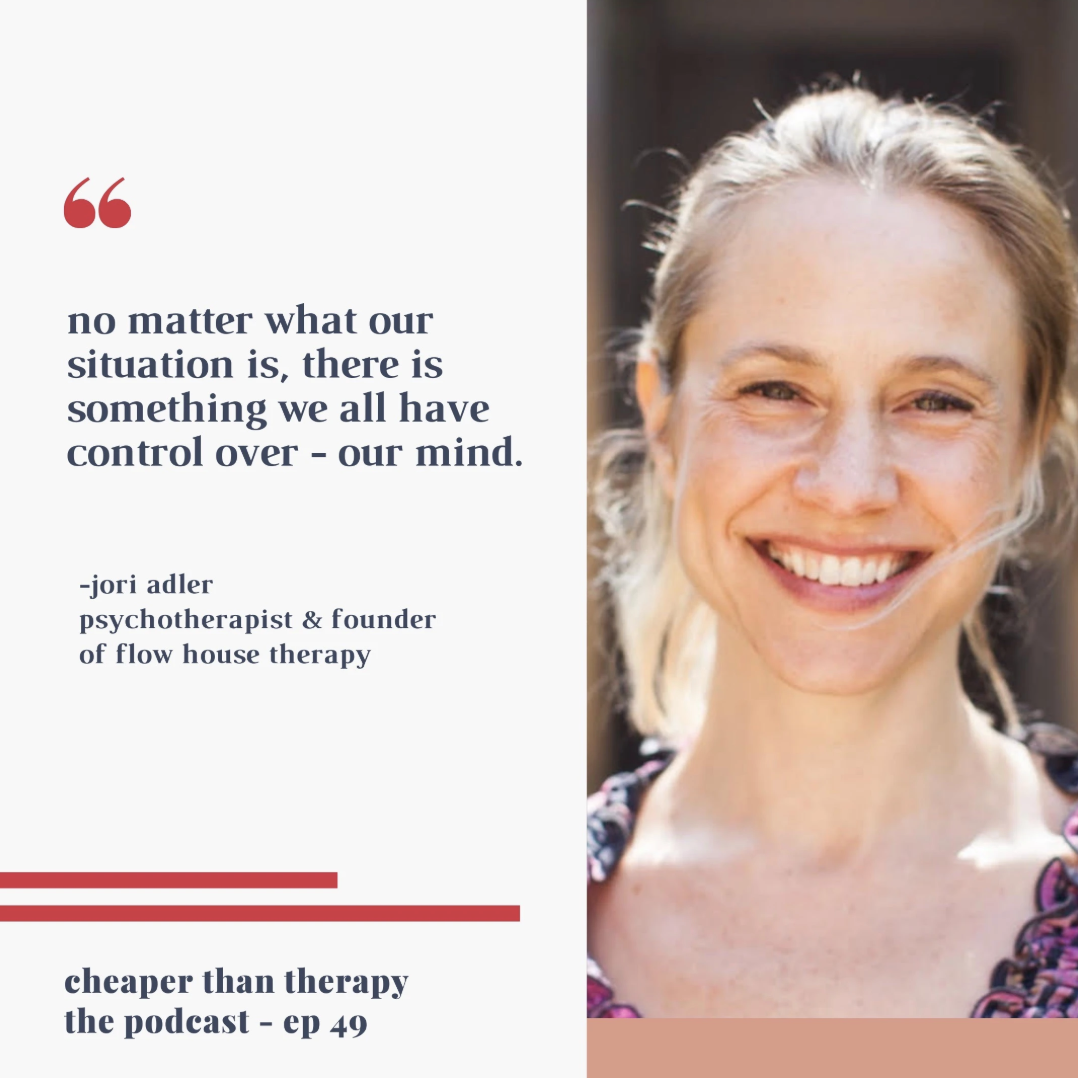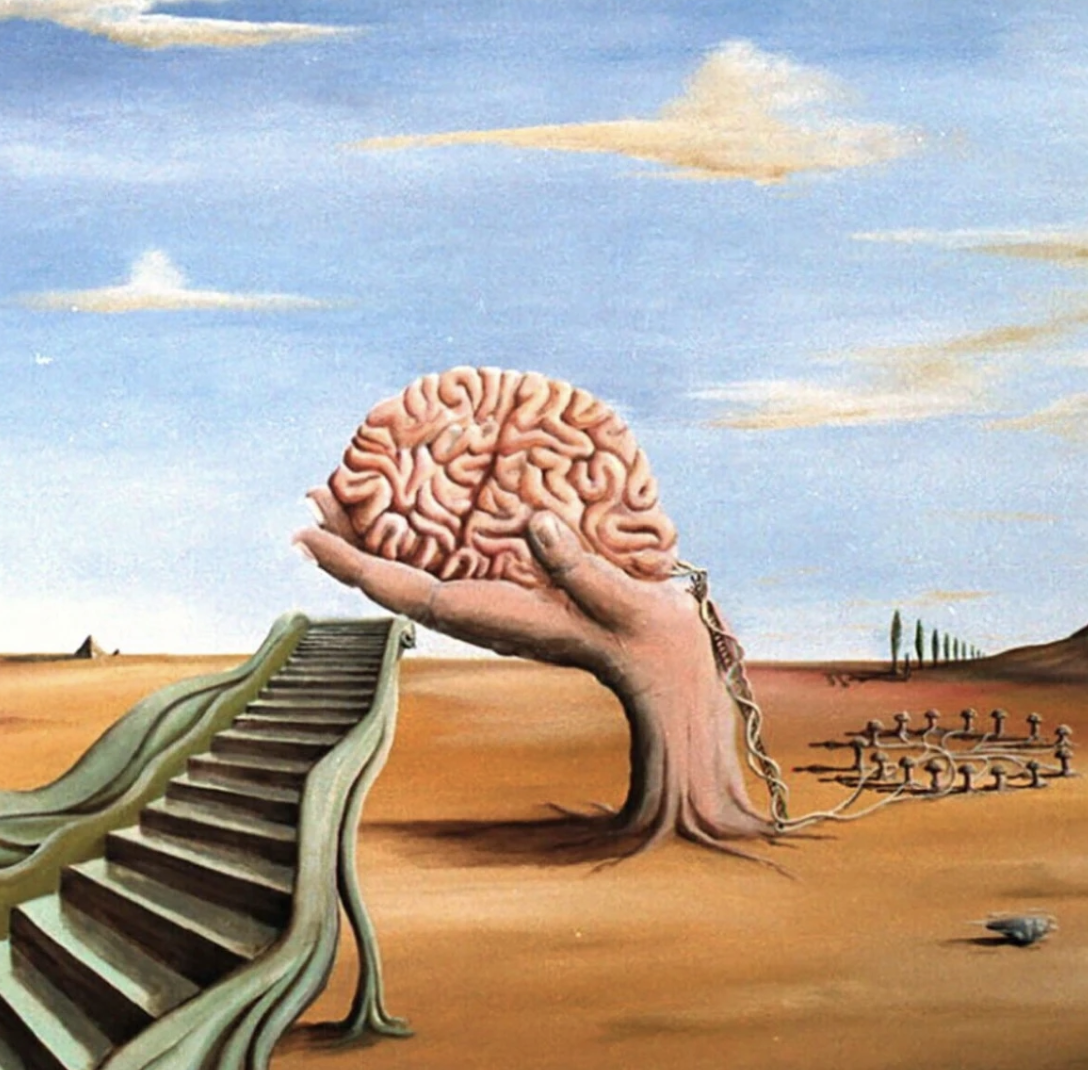Building Your Personal Power
Was my absolute pleasure to talk to these two dynamos on @cheaperthantherapythepodcast.
In the 2nd half of the convo, we get into my favorite topic: How to Build Your Personal Power! I do much more babbling on the show but here are some quick ideas:
#1 Our Minds are Something We All Have Influence Over
Even though it may not feel like it, you have control about what goes on in there.
#2 Rule It Like a King or Queen
Your mind is your kingdom. You are the leader and it wants to be led. Learn to do this with meditation by consciously directing your thoughts back to your breath.
#3 Ask For What You Want
It’s hard to let ourselves want something; it’s hard to risk the disappointment and pain of not getting it. But it’s important to say what we want and to let ourselves feel the longing of it.
#4 Say Thank You
Appreciate what you have. We all have many things to be grateful for. Our job is to look for them.
#5 Your Body is the Key
This can’t just be in the mind - you have to use your body. Go from passive body into active. Back erect, legs strong, blood flowing, eyes sharp. Feel like a lion. Extend your arms, imagine you’re palming a basketball. Your hands are not limp, they are magnetized. Lightning bolts could come through. You're building a visceral sense of power.
Now go back to your mind or the issue at hand. Feel any different?
#6 Visualization
Very Important! Neurons in our brain cannot tell the difference between what we're imagining and what is actually happening. If you generate feelings of love in your body, you will actually become more loving.
Feel your whole body in & out as you imagine - up & down, around, within, between, behind, above. Fill yourself up inside - go inside the actual organ of your heart! See the chambers pumping.
Picture someone you love and try to amplify that feeling in your heart. If you can tap into love, that's real power!
Please listen to the podcast @cheaperthantherapythepodcast for more ideas!
Shouldn't I Be Happier?
ANY OF THESE HIT A NERVE?
- I'm depressed or sad for no apparent reason.
- I don't know what I feel or what I want.
- It’s hard for me to ask for help.
- I’m very hard on myself.
- Shouldn't I feel happier than I do?
- I feel numb and empty inside.
- I tend to push down my feelings or avoid them.
- I expect rejection from people. If I let them get too close, they won’t like what they see.
It can be hard for many of us to think critically of our parents or our childhood. This is especially true if we grew up in a loving home with plenty of food and clothing and were never abused or mistreated. You may have some memories about what happened in your childhood, but what about what *didn’t* happen*? Because *what didn’t happen* has as much or more power over who you have become as an adult than any of those events you do remember.
No doubt, parenting is the hardest job in the world, most parents are doing their absolute best, and no one is perfect. But, to love your child is a very different thing than being in tune with your child.
For a parent to be in tune with his child, he must be a person who is aware of and understands emotions in general. He must be observant so that he can see what his child can and can’t do as he develops. And he must be willing and able to put in the effort and energy required to truly know his child. A well-meaning parent who lacks in any one of these areas is at risk of emotionally failing his child.
This Childhood Emotional Neglect (CEN) is invisible, vague, hard-to-define and is rampant. It can explain many of the empty, lost, depressed feelings described at the beginning of this post.
What’s tricky is that Emotional Neglect is so subtle, it’s barely observable. And it hides in what’s NOT THERE.
EXAMPLES OF PARENTING STYLES THAT CAN LEAD TO CHILDHOOD EMOTIONAL NEGLECT (CEN).
⇨ Anything feel familiar? ⇦
✔︎ THE WORKAHOLIC PARENT:
- By putting their work first, parents send message to kid that her feelings, needs & accomplishments are of lesser importance (damaging child’s self-worth)
- Some children act out to get their parents' attention, others grow up with low self-esteem
- Children often grow up with privilege (don't see themselves as deprived), so they feel guilty for not being happy
- The loss of a parent to divorce/death/etc is perceptible. The loss of a parent to success is invisible & vague
✔︎ THE DEPRESSED PARENT:
- Child feels that he must be perfectly behaved so as not to make his parent feel worse. Grows up having difficulty making mistakes, rocking the boat, or allowing himself to be an imperfect human being
- Parent has little energy, turns inward, focuses on himself & what is wrong with him
- Because parent has little to give as far as comfort or encouragement, child doesn't know how to self-soothe and may turn to drugs or alcohol
- Child feels worthless and is at risk to become depressed himself
✔︎ THE NARCISSISTIC PARENT (a whole other article will be written on this, specifically on the COVERT NARCISSISTICS):
- Demand perfection from their children (because they see it as a reflection on themselves)
- Child's needs are subsumed by the parent's needs (mostly the need to be seen in a flattering light by others)
- Lack ability to imagine or care about what child feels (more focused on the child being successful and may not notice if child is lonely, depressed, withdrawn)
- Parent takes child's behavior personally ("How could you do this to me? Everyone will think we're ... “)
✔︎ THE PERMISSIVE PARENT:
- Often seen as very loving and "cool" by their children, because these parents stir up very little conflict with their children
- Many of these parents have discomfort with conflict themselves and simply don't say "no" enough to their kids (being momentarily hated by your child for saying no is painful)
- Do not provide kids with limits, structure or a strong adult against whom they can rebel
- The children grow up thinking their parents gave them every opportunity and so blame themselves for their inner struggles
- Child doesn't get enough feedback from parents. They treat children like buddies instead of taking opportunities to teach them valuable lessons
✔︎ THE HIGH FUNCTIONING ADDICTED PARENT:
- These are high functioning, loving, present parents whose addictions may not even be identified by the family
- What harms the child is the parent behaves like two different people and the child cannot always predict which side of her addicted parent is going to show up (During the day mom might be kind & supportive, at night after a few drinks she may become mean & frightening)
- With this unpredictable parenting, the child becomes anxious, worried & insecure
- Child has that feeling of waiting for the other shoe to drop
- Child learns how to avoid consequences, navigate mom's moods and "play" people
✔︎ THE WELL-MEANING-BUT-NEGLECTED-THEMSELVES PARENT:
- Even the most loving and well-meaning parents can be emotionally neglectful, most probably because they themselves were emotionally neglected
- Parent may not attend to the *feeling* level of life. Mostly lives on the surface of life, not aware of or in touch with the world of emotion
- Parent has blind spots about the connection between behavior, feelings, and relationships and never teaches these to the child
For more, see Jonice Webb, "Running on Empty"
Image: Face House, Kyoto by Kazumasa Yamashita
Why We Get Sick
One of the most frequent issues I hear from clients is about their Chronic Need for Approval.
Us too! While writing about our personal struggles for the bios on our website *every single one* of us therapists chose some version of, "High expectations of myself," "Saying no," "Forgiving my shortcomings," "Disappointing people."
Why do we all need this approval so desperately? I'd say it's something about fear of abandonment, needing to be accepted by the pack so we're not excluded and cast away.
And what effects is this having on our culture? On us individually?
Last week, I devoured Dr. Gabor Maté's book, "When the Body Says No: Understanding the Stress - Disease Connection."
Maté writes beautifully on the mind - body connection in health and adds a new layer I hadn't fully recognized:
★ The role of emotional suppression in the formation and development of illness. ★
"Many people unwittingly spend their entire lives as if under the gaze of a powerful and judgmental examiner whom they must please at all costs. Many of us live, if not alone, then in emotionally inadequate relationships that do not recognize or honor our deepest needs. Isolation and stress affect many who may believe their lives are quite satisfactory...
When we have been prevented from saying no, our bodies may end up saying it for us." - Dr. Gabor Maté
After decades of work as a family practice doctor and hundreds of interviews for this book, Maté identified several personality characteristics / types common in patients struggling with Cancer, Autoimmune Disorders, Irritable Bowel Disorders, Heart Disease, MS, and more:
- Chronic need for approval
- Habitual denial, suppression, or repression of fear, sadness, anger
- Compulsive sense of duty to others
- Inability to say no
- Inability to express emotion
- Self-imposed need to conform to society's expectations
- Discomfort asking for or receiving help
In making the link between repressed emotions and the development of disease, Dr. Gabor Maté invites people to look at their relationships:
- How much of your partner's stress do you take on?
- How much of a people pleaser are you?
- How nice are you to people no matter how you feel?
- How much do you take on the problems of other people & ignore your own?
- How well do you know yourself?
He also suggests abandoning so-called "Positive Thinking."
This "Compulsive Optimism" often excludes those parts of our reality that strike us as "negative." However, it is important to include ALL of our reality. We must develop the confidence that we can trust ourselves to face the full truth, whatever that full truth may turn out to be.
What, if anything, is this illness saying about the past & present? What is not working? What have I ignored? What is my body saying no to?
Of course, personality does not by itself cause disease; one does not get cancer simply from repressing anger or ALS from being too nice. A biopsychosocial model recognizes that many processes and factors work together in the formation of disease and in the creation of health.
Do you recognize yourself in any of these descriptors? Might they be connected to your physical health?
Psychedelics & EMDR
We love the transcendent opportunities of psychedelics, the profound shifts in perspective, the deeply felt sense of belonging and ok-ness.
Yes, they have become big business. Yes, proper facilitation and integration can be important to consider. Yes, they're amazing and, yes, they also get misused.
I feel like not enough people talk about the similarities between psychedelics and EMDR.
EMDR is a type of therapy, through gentle tapping on the body or guidance of eye movements, that opens and activates the subconscious mind.
There is an abundant amount of high-quality information in our subconscious. They key is in finding ways to access it - dreams, spiritual journeys, psychedelics, nature, art, EMDR.
In there is a universal wisdom deeper than what we can come up with in our conscious minds. Memories emerge and reframe; distorted thinking loosens; our bodies let go of the grips and find that oceanic calm.
We don’t exactly know how it works and we don’t know why, yet many people tap into something beyond themselves simply through accessing the subconscious.
The work is both fast and slow.
Weeks of preparatory process with your therapist can be helpful to open a path to your body and into your imagination. Together you'll choose a "target" to focus on - something coming up hot for you these days or something from your past - and then once you begin the tapping or the eye movements, the release can come pretty quickly.
You'll just follow whatever comes to mind .. could be a smell, a free association, a random memory, a fictional character, a joke.
You just follow the white rabbit. Doesn't need to make sense.
And somehow, somewhere, just like with psychedelics, something ✨clicks✨ and it all feels different.
Because once you see truth, you can't unsee it.
To Be a More Artful & Successful Lover
"Good Questions to ask as You Work to Become a More Artful and Successful Lover:
* What qualities do you look for in a lover that you would benefit from developing more fully in yourself?
* What do you think are your biggest delusions about the way love works?
* Is there anything you can do to make yourself more lovable?
* Is there anything you can do to be more loving?
* Are you willing to deal with the fact that any intimate relationship worth pursuing will inevitably evoke the most shadowy aspects of both partners - and prod both partners to heal their oldest wounds?"
- Rob Brezsny @robbrezsny
🎥 “Playboy Love Scenes,” 1973









